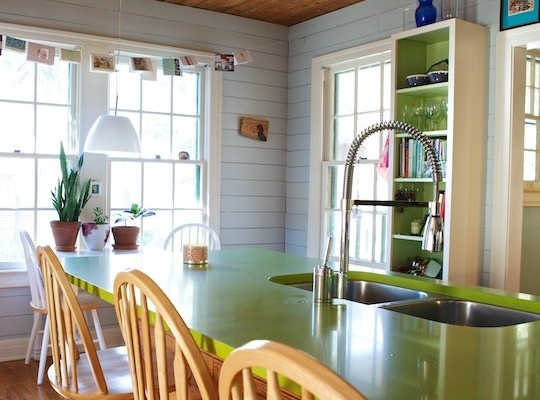
When people think of kitchen counters, the materials commonly used are cement with perhaps a slab of marble laid out on top. While this is certainly a workable combination, there is a huge variety of alternative materials out there, many of which offer numerous advantages over the traditional cement-marble combo. Here are some feasible alternatives to marble and their relative advantages and disadvantages.
Natural stone
Marble belongs in this category, but there are other types of natural stone you might want to consider for your kitchen counters as well, such as granite, soapstone, and even limestone. These materials have the benefit of durability and resistance to heat, and timeliness. On the downside, natural stone will require an additional sealing step because of its porosity. Natural stone is also pretty high maintenance and will require regular resealing. It is also the most expensive of all materials typically used on kitchen counters.
Cultured stone
Cultured stone is actually a mixture of quartz and various pigments, made to look and feel like natural stone. They are available in a variety of solid colors and patterns. They provide many of the same benefits as natural stone, but do not require sealing or frequent maintenance. On the downside, they are almost as expensive as natural stone but don’t look quite as nice.
Solid surfacing
Solid surfacing is another way to get the look and feel of natural stone without the maintenance hassles. They are also available in a wide variety of colors and are often designed to look like glass or smooth concrete. Very low maintenance and very resistant to heat and moisture, these materials are fairly easy to scratch and can be scorched.
Laminate
Laminate kitchen counters are made from a panel of plastic resin laid over plywood or particleboard. They can look remarkably similar to natural stone unless you examine them closely, and they are very inexpensive. However, they are prone to cuts, cracks, and heat damage, all of which cannot be repaired.